- Home
- Molly Harper
The Single Undead Moms Club (Half Moon Hollow series Book 4) Page 3
The Single Undead Moms Club (Half Moon Hollow series Book 4) Read online
Page 3
“I know you disagree with how I went about it, Mrs. Nightengale, but believe me when I say becoming a vampire was the only solution for me. And I will work hard to learn everything you have to teach me.”
“I’m glad you said that,” Jane told me. “Because we don’t have a lot of time.”
I’d been wrong. Turned out the Council did give a gift basket, full of samples of different synthetic bloods, SPF 500 sunscreen, iron supplements, Razor Wire fang floss, and a contact sheet for every vampire-friendly blood bank in the area.
Unfortunately, Jane’s idea of “training” me involved treating me like a recalcitrant cat. She fed me a steady diet of bottled blood hourly. I would work on my client accounts between feedings, to distract myself from my thirst and so my business wouldn’t suffer. At random times, Jane would wave a bag of donor blood under my nose. I was shocked by how good it smelled, like fresh-baked warm bread and toasted marshmallows and every good thing you could imagine wanting to eat all rolled into one. Despite being so full I was sloshing, my mouth still watered, and my fangs dropped so quickly it was almost painful. And every time they did, Jane would shoot me in the face with a spray bottle full of cold water.
“Aaah!” I cried. “Damn it, Jane!”
“It’s like aversion therapy,” she said with shrug, shooting me in the face again.
“Are you trying to keep me from craving human blood or climbing on the couch?” I grumbled, wiping at my face “And ow, ow, ow, why is it burning?” I swiped at my cheeks, wincing at the stinging sensation rolling across my skin. And then my palms started to burn. “What the hell, Jane?!”
“It’s a point-zero-zero-one percent solution of colloidal silver. Vampires are highly allergic to silver. To humans, it’s perfectly harmless. In fact, you find it in a lot of health-food stores. But to vampires, depending on the concentration, it can be a minor annoyance, like a sunburn that takes a few minutes to heal—or it can melt your face off and kill you. Trust me, I know.”
“God, you can be scary,” I told her.
“Really?” Jane asked. “Thanks! I’ve been working on being diabolical. I only got appointed to the Council because the last lady who had my job screwed up big-time, and I think the bureaucracy was trying to give me some sort of ironic punishment, like Sisyphus but with more paperwork. I worry sometimes that people don’t take me seriously as head of the Council. And it’s dangerous when other vampires don’t take you seriously as head of the Council.”
I stared at her.
“Not the point,” she conceded.
I discovered there was a whole range of synthetic bloods beyond Faux Type O. It was a little like coffee—there was the cheap stuff and the expensive stuff, the stuff you only pulled out when company was coming over. Until we were sure how I would react around humans, neither one of us was willing to risk my trying donor blood. I promised myself it would be a treat, like rewarding myself with a box of Vosges exotic truffles at the end of tax season—only this was a treat I was deadly afraid of and probably wouldn’t indulge in for several years.
My first sunrise found me falling into the deepest slumber I’d ever experienced. And for the first time in months, I didn’t worry about whether I’d wake up. I was amazed at how quickly the sun pulled me into unconsciousness. I’d no sooner slid under the yellow log-cabin quilt on my bed than I tumbled into oblivion.
I discovered that the undead dream. Instead of the blank slate I expected during my dead sleep, I had a very active subconscious. I saw myself stretched across the scratchy polyester bedspread of the Lucky Clover Motel, ignoring the potential parasites that lurked in the bedding as I waited for my sire to arrive. I’d taken a healthy dose of over-the-counter sleeping pills to stave off the pain of turning, so my impressions of him were pretty hazy. I could remember parts of his face but not the whole. I remembered high, sculpted cheekbones and deep, bittersweet-chocolate eyes fringed with long lashes. A smile that was warm, even a little naughty. As I faded in and out, he stroked his cool hands down my face and told me everything was going to turn out like it should, that I was safe and would always be safe. He kissed me, long and deep, cradling me against his chest like I was something precious. And then he bit my wrists, letting the blood drain from me while he dripped his own into my mouth. I latched on to that arm, clutching it to my mouth as I swallowed huge mouthfuls of his thick, slightly sweet blood.
I was dying, not in the slow slide I’d taken over the last few months but plummeting off the cliff into the unknown. My pulse echoed in my ears, beat by beat. I couldn’t draw breath. The man held me close, whispering that death was always difficult, but when I woke, I would be like him. And I would be strong and beautiful and fierce. And he would be there, taking pleasure in every new step I took.
When I woke at sunset, it wasn’t the blood but this man’s kiss I tasted on my lips. I could smell him, that expensive scent of amber, and feel his cool hands on my skin. I was left wanting with a bone-deep ache. For the first time in my life, I understood the word “yearning,” beyond mocking it in romance novels. Because for the first time, I felt like I was being denied something beautiful, something that was mine. Unfortunately, I was also pretty sure my brain had concocted that thing from a mix of sedatives and oxygen deprivation.
I wasn’t a fairy-tale sort of girl. I’d never been able to afford that sort of whimsy. There was no dream prince. There was no true love’s kiss. At the end of the story, the newly married princess went home to her husband’s castle to deal with dental bills, laundry arguments, and a dowager queen unwilling to give up her throne.
Sometimes I felt like I was too harsh with Rob, or at least his memory. Weren’t widows supposed to put their dead husbands up on a pedestal? Wasn’t I supposed to have some sort of little shrine on my nightstand devoted to him, with a big eight-by-ten photo and votive candles? It wasn’t that I disliked Rob. In fact, I liked him very much in the beginning. He wasn’t a bad husband. He just wasn’t a good one.
By the end, we were more roommates than anything else. Rob had a lot of hobbies—hunting, fishing, softball, basketball with his friends. When we were first married, I appreciated the space. Marriage was difficult for me. I was used to having quiet time for myself.
When we were first married, I bucked Stratton family tradition and continued working at a local accounting firm, Freegate and Swanson. But after Danny was born, I liked working from home, so I opened my own business. (To be honest, I poached a bunch of clients from Freegate and Swanson when I left. It wasn’t my fault that my bosses had so little faith in my “work-from-home mom” scheme that they didn’t make me sign a noncompete clause.) So my world slowly shrank down to Danny, Rob, e-mails from clients, and other moms. The freedom allowed me to make my own hours. I could stay home with Danny when he was sick. I could do a monthly payroll statement at two in the morning, which was sometimes the only time I had to think without a toddler crying in my ear or a baseball game blaring on the TV.
It was fortunate that I could tailor my schedule this way, because I was raising Danny alone long before Rob was gone. I was the one who got up with Danny in the middle of the night when he was throwing up. I was the one who went to parent-teacher conferences, doctor appointments, the meeting with the Sunday-school teacher when Danny walked out of the “Adam and Eve” lesson and told the congregation that they spent the whole morning talking about naked people. I thought that as Rob matured a little bit, got a little more comfortable with Danny, he would dial in, get more involved. He always said he would spend more time with “his boy” when Danny was old enough to throw a ball, shoot a gun, do something interesting. Until then, the dirty diapers, the two A.M. feedings, the teething cries—they were my problem.
I felt so disconnected from everything—except Danny. It was like a cocoon around my heart had opened up. I found my happiness in my son, his sweet, funny little soul, his crazy imagination. I found solace in volunteering at his school, taking him to story time at the library, making his Hallowee
n costumes. I knew that one day he would grow up, marry, have a family of his own. But for the time being, I was enjoying motherhood and hoped that he would choose a spouse more wisely than his mother had. And when Rob died, I didn’t really mourn him so much as the life we could have had, the husband he could have been.
I did not discuss these singularly depressing thoughts, since Jane was a pretty talented mind-reader and probably already knew. Also, she kept mentioning how much she disliked my “unethical, shameless jackass” of a sire. Every night. I considered this a bad sign, since Jane seemed to have a pretty high tolerance for sketchy people. Jane herself had been mistaken for a deer by a drunk hunter, gotten shot, and been turned by a passing vampire to keep her from dying. All that, and she still found my story a little scandalous.
Jane clearly thought of Dick Cheney as like a brother, and I was pretty sure that before being turned, I would have hidden in the ladies’ room to avoid Dick at a rest stop.
But as I got to know him during his numerous visits to check on Jane and monitor my progress, I saw that despite the shifty exterior, Dick truly cared about Jane, and because Jane cared about my progress, so did Dick. They had history. Not only was Dick the best childhood friend of Jane’s husband, but on Jane’s first night out as a vampire, Dick was the one who stopped the disastrous parking-lot fight that almost got Jane’s skull crushed. Dick was also married to Jane’s friend and business partner, Andrea, and occasionally worked at Jane’s bookshop to keep an eye on “his girls.” Jane said these sorts of multilevel entanglements were common in vampire relationships.
“Just wait until you meet Gabriel, Zeb, and the rest of the bunch,” she said as we sipped a particularly iron-rich Maxwell House International Coffee Café New Orleans blend of blood and caffeine. “You’ll see how enmeshed we really are.”
For some reason, that warmed my still heart. Despite my bumpy start, Jane was going to introduce me to her family. And given the way she talked about them all, with that fond, exasperated tone only a mother could understand, I knew how important they were to her. Maybe I would be able to find a community among vampires that I’d never had as a human. Oh, sure, I had acquaintances, women I knew from church and the PTA, but I didn’t have a lot of close friends. Or any close friends, really. I told myself it was because I didn’t have time, but I suspected that I simply wasn’t good at making them. My childhood hadn’t exactly prepared me for sister-friends.
I was a classic adult child of a single parent. I never met my dad. Mom never said much about him, other than to tell me that they hadn’t had a lot of time together but he’d been the love of her life. I appreciated that she never threw him in my face as I was growing up. She never blamed me for her expulsion from one of the Hollow’s nicer subdivisions to the Garden Vista trailer park. She never accused me of ruining her life. She just didn’t share that life with me. We were more like roommates, moving in circles around each other, carefully avoiding long conversations or anything that might make the other uncomfortable.
My father was just another topic Mom didn’t discuss. I didn’t think about it much until we studied genetics in high school, and I had to leave half of my personal Punnett square blank. I didn’t know what color my father’s hair or eyes were. I didn’t know what color his parents’ hair or eyes were, so I had no idea whether my deep-set blue-green eyes came from his side of the family. I was pretty certain the blond hair and fair skin came from my mom’s side. But since her parents kicked her out when she announced that she was pregnant and then moved from the Hollow to “get away from the shame,” I hadn’t had much of a chance to study their genetic traits.
My father, like so much of my childhood, was an equation I’d had to figure out on my own, and when the answer didn’t come, I’d set it aside for consideration some other day. There were times when I felt rootless, like not knowing more about my parents meant I lacked an identity. But I tried to turn the problem on its side and see that lack of detail as setting me free from the constraints of someone else’s expectations. The only limitations put on me were the ones I put there. Oddly enough, I seemed to have put a lot of them on myself without even realizing it, but that was an epiphany I wouldn’t have until much later in life.
I realized that my life story sounded pretty pitiful, a lonely waif child left to languish in a single-wide. But I didn’t feel sorry for myself. I knew what some of the other kids in my neighborhood were going through. By comparison, I had it relatively easy. I didn’t get smacked around. I didn’t have a fully functioning meth lab in my bathroom. Mom may not have been a font of praise and maternal wisdom, but she worked hard to provide what she could for me. I learned how to do things on my own, how to take care of myself, and that’s more than a lot of my classmates graduated from high school knowing.
And then she was gone, leaving me alone. While I was used to being alone, I wasn’t used to feeling alone. Without the only family I knew, I was adrift, ripe for the picking, when I met Rob a year or so later, at the Qwik Mart, of all places. He was looking for flowers to buy his mom for her birthday and asked me what kind he should get. I told him not to buy his mother gas-station flowers. (That should have been a clue, really.) Rob was a few grades ahead of me, so I didn’t really know him. And I hadn’t been into extracurriculars or school dances, so he didn’t recognize me.
I’d thought I was lucky to catch Rob’s attention. I’d never dated before. Between homework and a part-time job that helped keep up with our bills, I didn’t have time. And I was so afraid of ending up like my mother that I practically hid from boys when they tried to speak to me. To end up with a man who not only wanted to marry me but also had a ready-made family looking for a daughter seemed too good to be true.
Which, of course, it was. But again, I was a late bloomer when it came to epiphanies.
For now, I was just grateful to have more time with my son. Everything else? It was just another equation, a problem to solve. I would keep chipping away until I figured it out.
When she wasn’t making vague threats to my unnamed sire and his tender parts or trying to get me to attend meetings of the Newly Emerged Vampires Support Group, Jane was torturing me with assigned reading. Since I’d rushed into my decision, Jane was enforcing a strict course of study of vampire history, politics, and personal safety. Jane happened to own Specialty Books, a charming little shop downtown, so she had a wealth of instructional materials to school me on my new culture, including 50 Ways to Add Variety to Your Undead Diet; From Caesar to Kennedy: Vampires and Their Clandestine Political Influence throughout History; and Love Bites: A Female Vampire’s Guide to Less Destructive Relationships.
At the top of the stack was a slick paperback with a pale, cheerful woman holding a cherubic toddler on the cover. It was called My Mommy Has Fangs: A Guide to Post-Vampiric Parenting.
“I was a librarian when I was human,” Jane explained while I stared at the book with disdain. “Helping books find the people who need them is sort of my thing.”
“I would be insulted by the parenting book, but I feel like I don’t have much of a leg to stand on, in terms of dignity.”
“That’s true. But the first thing I want you to read is this,” she said, dropping a book titled The Guide for the Newly Undead, Second Edition on top of the stack. “This is your new Bible. Everything you need to know about being a vampire, all of the random questions you come up with at five A.M. and don’t want to bother anyone with, it’s all in here. It’s the cornerstone product at my shop. And it’s a second edition, so it has a feeding plan for once you get settled into your diet and a list of reliable online vampire vendors, both of which are pretty darn handy.”
I flipped through the stack of books, wondering how I was going to read or remember any of this information. I don’t think I’d studied this much for the CPA exam. “I was never good with homework,” I muttered.
“I’ve seen your desk, sweetie. I don’t believe that for a second,” she said, putting my laptop in my hands. “No
w, by tomorrow night, I want a five-page essay on the structure of the World Council for the Equal Treatment of the Undead and how it governs local vampires like yourself. The main focus of your essay should be how to stay off the Council’s radar.”
“You’re kidding. You do realize that I have to run a business from home while my child sleeps, right? A business that I need to keep running if I want to feed said child?” I laughed. But Jane did not smile. “You’re not kidding.”
“No, I am not,” she said, dropping the Guide for the Newly Undead in my lap. “Double-spaced, one-inch margins. You can find the time. You’re a multitasker.”
I stared down at my textbook. Despite the fact that I’d ruthlessly retrained my potty mouth after Danny and tried to replace the foul words with more intellectual terms from my word-of-the-day calendar, I let loose a “sonofabitch.”
Jane’s assigned reading list was illuminating and sort of horrifying. I was in junior high when a vampire tax consultant named Arnie Frink flung vampires out of the coffin onto an unsuspecting human public. Arnie sued his employer for the right to work overnight in his office, claiming to have porphyria, a potentially fatal allergy to sunlight. His tax firm denied his assertion that allergies, even if they did make his skin blister like bubble wrap, were a legitimate reason to let him have unsupervised access to the copy machine. And when the court sided with the firm, Arnie threw aside his layers of protective clothes, and, while his skin sizzled like bacon, declared in open court that he was a vampire, with a medical condition subject to the Americans with Disabilities Act, and they were stomping all over his rights.
After enduring several lengthy appeals and extensive testing by mental-health professionals, Arnie won his lawsuit and got a respectable financial settlement, evening hours, and his fifteen minutes in the media spotlight. And an entire planet full of people flipped the hell out. Humans burned, staked, and dragged vampires out into the sun without giving the undead any chance to defend themselves or prove that they weren’t murderous monsters. And if the deaths could reasonably be explained away as accidents, the authorities took on a stubborn “see no evil, hear no evil, believe total bullshit” policy.

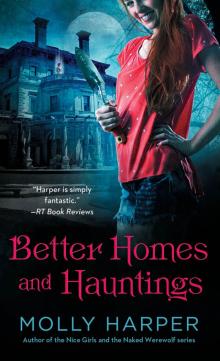 Better Homes and Hauntings
Better Homes and Hauntings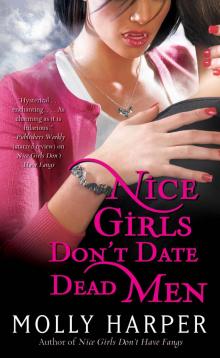 Nice Girls Dont Date Dead Men
Nice Girls Dont Date Dead Men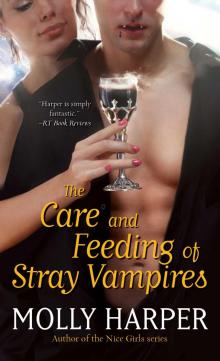 The Care and Feeding of Stray Vampires
The Care and Feeding of Stray Vampires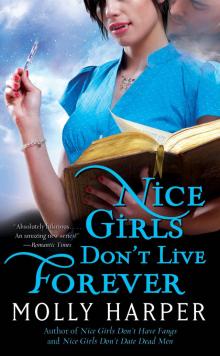 Nice Girls Dont Live Forever
Nice Girls Dont Live Forever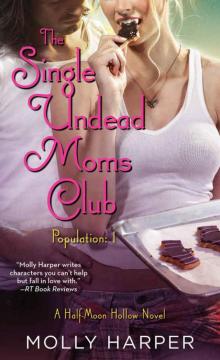 The Single Undead Moms Club
The Single Undead Moms Club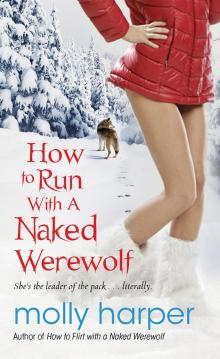 How to Run with a Naked Werewolf
How to Run with a Naked Werewolf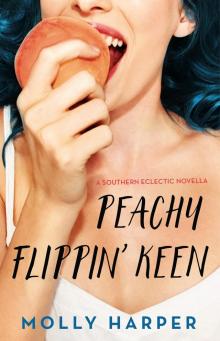 Peachy Flippin' Keen
Peachy Flippin' Keen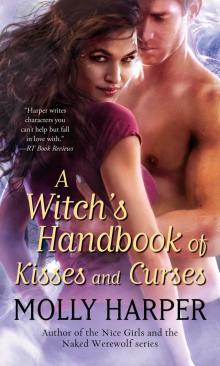 A Witchs Handbook of Kisses and Curses
A Witchs Handbook of Kisses and Curses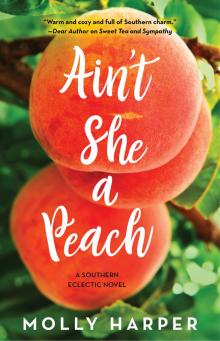 Ain't She a Peach?
Ain't She a Peach?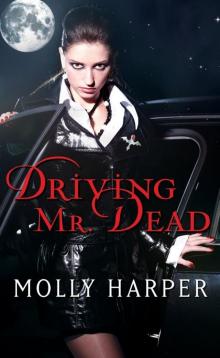 Driving Mr. Dead
Driving Mr. Dead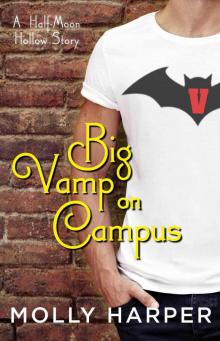 Big Vamp on Campus
Big Vamp on Campus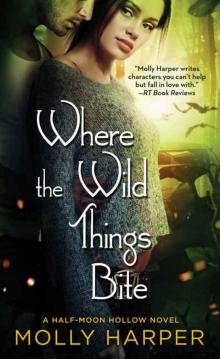 Where the Wild Things Bite
Where the Wild Things Bite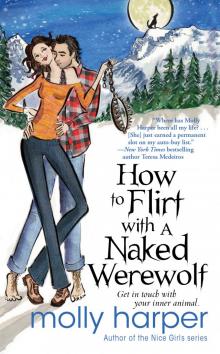 How to Flirt with a Naked Werewolf
How to Flirt with a Naked Werewolf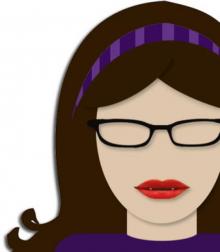 Nice Girls Don’t Sign a Lease Without a Wedding Ring
Nice Girls Don’t Sign a Lease Without a Wedding Ring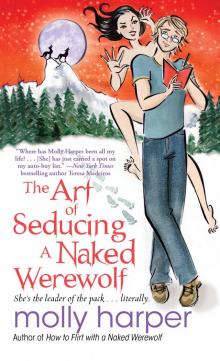 The Art of Seducing a Naked Werewolf
The Art of Seducing a Naked Werewolf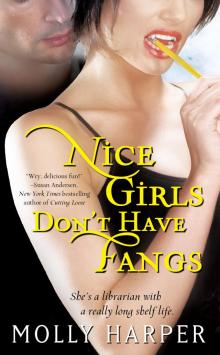 Nice Girls Dont Have Fangs
Nice Girls Dont Have Fangs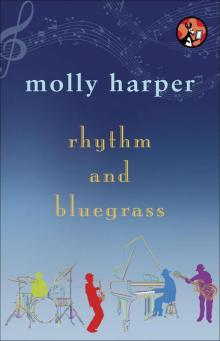 Rhythm and Bluegrass
Rhythm and Bluegrass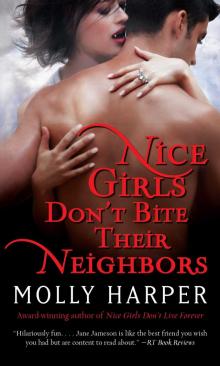 Nice Girls Dont Bite Their Neighbors
Nice Girls Dont Bite Their Neighbors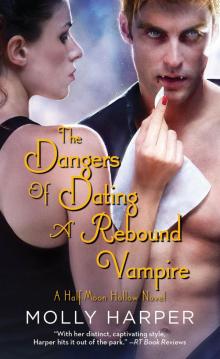 The Dangers of Dating a Rebound Vampire
The Dangers of Dating a Rebound Vampire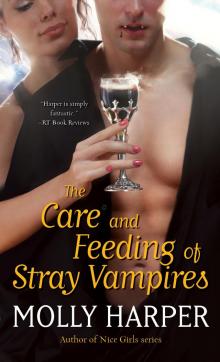 Undead Sublet
Undead Sublet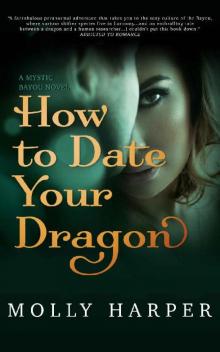 How to Date Your Dragon
How to Date Your Dragon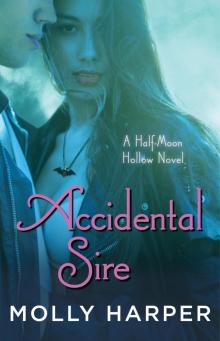 Accidental Sire
Accidental Sire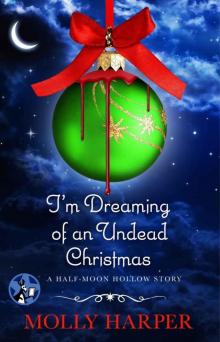 I'm Dreaming of an Undead Christmas
I'm Dreaming of an Undead Christmas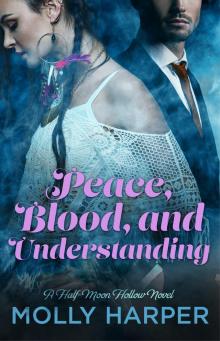 Peace, Blood, and Understanding
Peace, Blood, and Understanding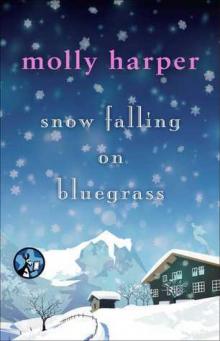 Snow Falling on Bluegrass
Snow Falling on Bluegrass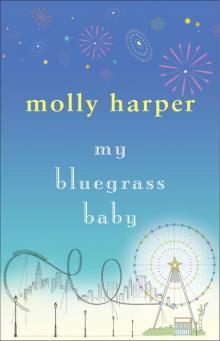 My Bluegrass Baby
My Bluegrass Baby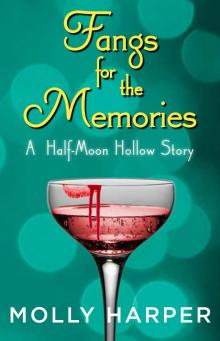 Fangs for the Memories
Fangs for the Memories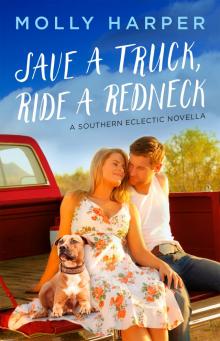 Save a Truck, Ride a Redneck
Save a Truck, Ride a Redneck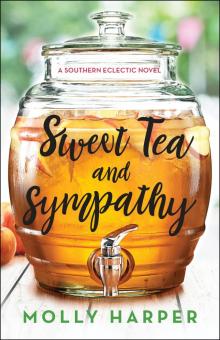 Sweet Tea and Sympathy
Sweet Tea and Sympathy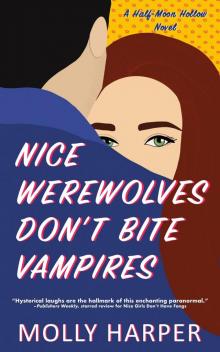 Nice Werewolves Don't Bite Vampires
Nice Werewolves Don't Bite Vampires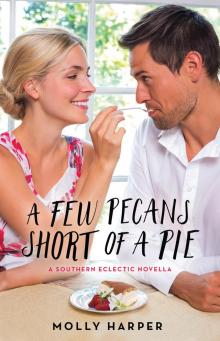 A Few Pecans Short of a Pie
A Few Pecans Short of a Pie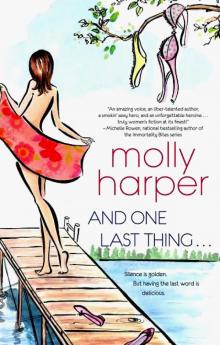 And One Last Thing ...
And One Last Thing ...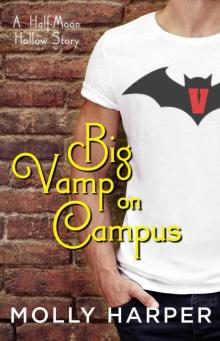 Big Vamp on Campus (Half-Moon Hollow Series Book 7)
Big Vamp on Campus (Half-Moon Hollow Series Book 7)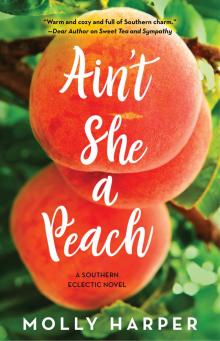 Ain't She a Peach
Ain't She a Peach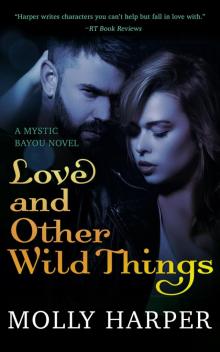 Love and Other Wild Things
Love and Other Wild Things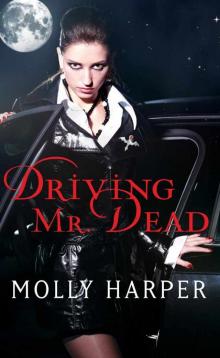 Driving Mr. Dead
Driving Mr. Dead![[Jane Jameson 03.5] Nice Girls Don't Sign A Lease Without A Wedding Ring Read online](http://i1.bookreadfree.com/i1/04/06/jane_jameson_03_5_nice_girls_dont_sign_a_lease_without_a_wedding_ring_preview.jpg) [Jane Jameson 03.5] Nice Girls Don't Sign A Lease Without A Wedding Ring
[Jane Jameson 03.5] Nice Girls Don't Sign A Lease Without A Wedding Ring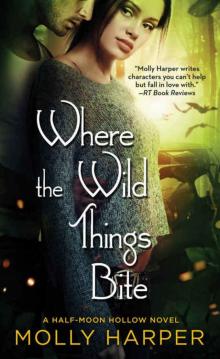 Where the Wild Things Bite (Half-Moon Hollow #8)
Where the Wild Things Bite (Half-Moon Hollow #8)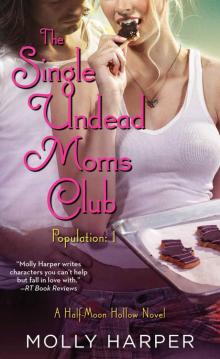 The Single Undead Moms Club (Half Moon Hollow series Book 4)
The Single Undead Moms Club (Half Moon Hollow series Book 4)